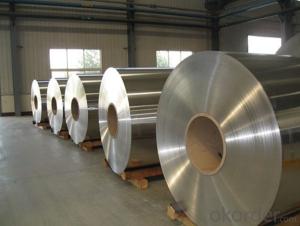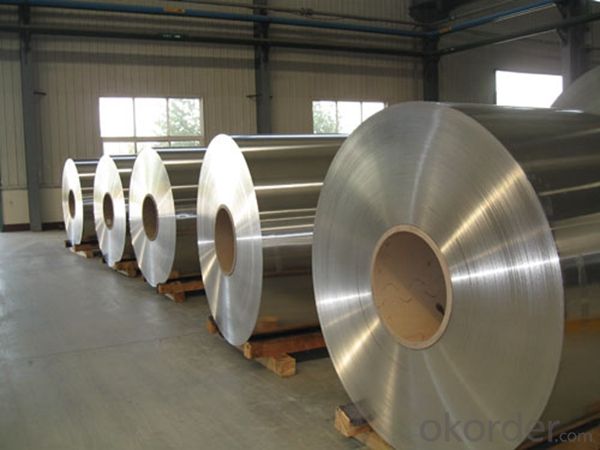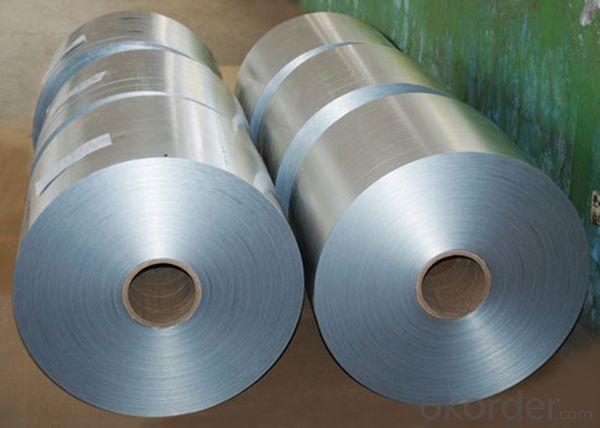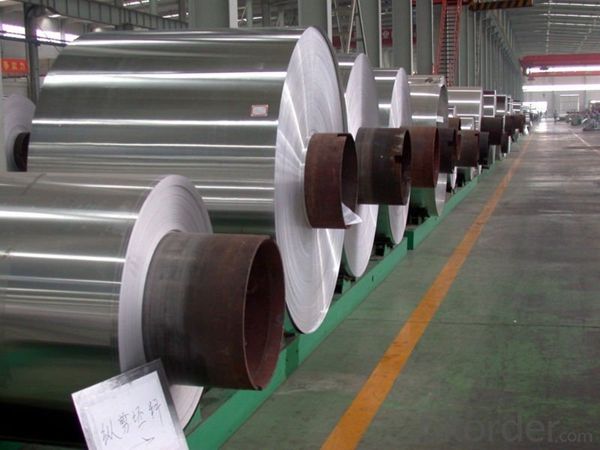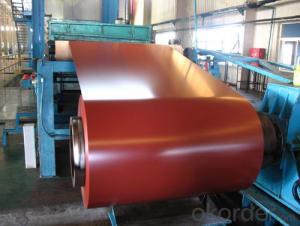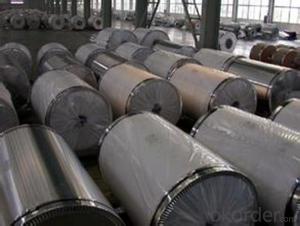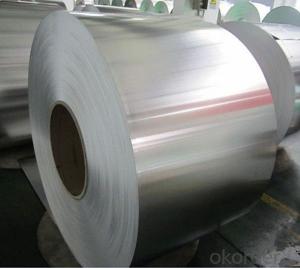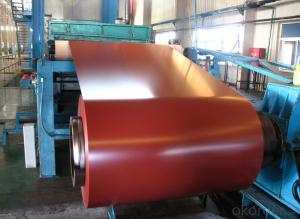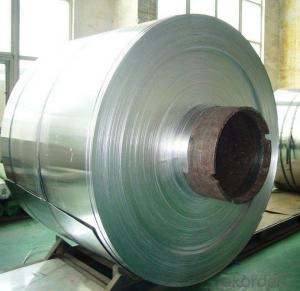3003 H12 Aluminum Coil China Supply for Sales
- Loading Port:
- Shanghai
- Payment Terms:
- TT OR LC
- Min Order Qty:
- 5 m.t.
- Supply Capability:
- 10000 m.t./month
OKorder Service Pledge
OKorder Financial Service
You Might Also Like
Specification
1. Specification of AA1100 H12 Aluminum Coil China Supply for Sales
Material | Alloy Aluminum 6063,6061,6005 or customer nominated |
Temper | T3, T4, T5, T6 |
Surface | Anodize, electrophoresis, powder coating, PVDF coating, wood grain painting, matted, etc. |
Colour | Any colour based on Standard Germany RAL Mark |
Length | Coating 6.5 meters, Anodizing 6.5 meters, Mill finish 5 meters |
Press Machine | 500-4000 tons all together 64 press lines. |
Fabrication | 1. Windows and doors; 2. Drilling; 3. Bending; 4. Cutting; 5. etc. |
Certificate | ISO 9001 |
Moulding | 1. Using our moulds, no fee; |
2. Using customer drawing, opening mould, usually about 10~50 tons then the moulding can be refunded. | |
3. Mould cost is negotiable base on the order quantity | |
Capability | Annual output 100,000 tons |
2. Application of AA1100 H12 Aluminum Coil China Supply for Sales
(1).Interior: wall cladding, ceilings, bathrooms, kitchens and balconies, shutters, doors...
(2).Exterior: wall cladding, facades, roofing, canopies, tunnels,column covers , renovations...
(3).Advertisement: display platforms, signboards, fascia, shop fronts...
3. Feature of AA1100 H12 Aluminum Coil China Supply for Sales
*Such coil is specially designed to replace aluminum ingot, due to the high export tax of aluminum ingot, the coil has better price than ingot.
*This type of coil can fit customer's remelting furnace just like ingot, no need to make any change to the production line that was previously used for ingot. The standard coil size and weight is very suitable for the feed gate of furnace.
*This type of coil causes less material wastage than ingot when remelted.
*Our coil is made directly from ore, no need to go though the ingot making process, quality is much better than other suppliers who use ingot scrap to make coil.
Be free from Oil Stain, Dent, Inclusion, Scratches, Stain, Oxide Dicoloration, Breaks, Corrosion, Roll Marks, Dirt Streaks and other defect which will interfere with use
4. Certificate:
SGS and ROHS(if client request, paid by client), MTC(plant provided), Certificate of Origin(FORM A, FORM E, CO), Bureau Veritas and SGS (if client request, paid by client), CIQS certificate
5. Image of AA1100 H12 Aluminum Coil China Supply for Sales
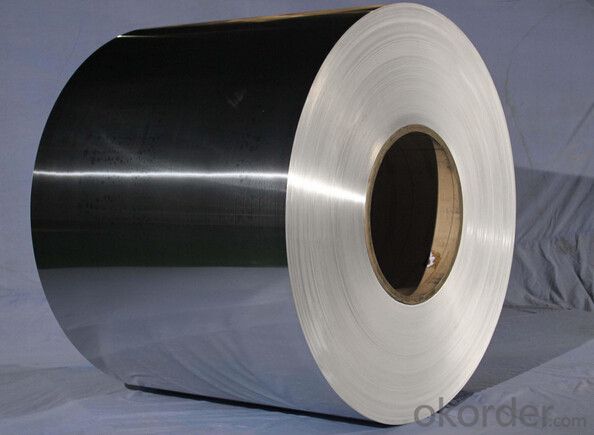
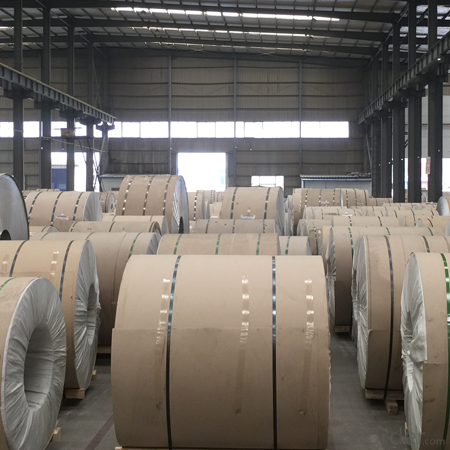
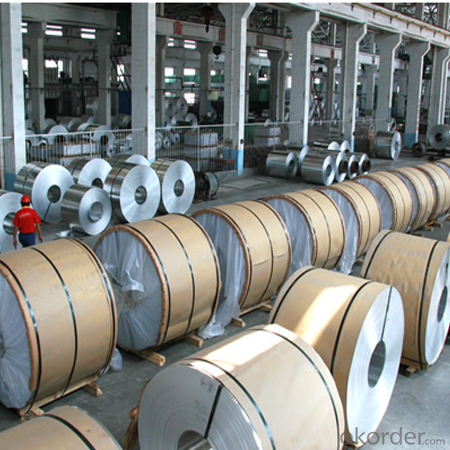
6. Package and shipping of AA1100 H12 Aluminum Coil China Supply for Sales
eye to wall
eye to the wall
with wood pallet (wooded case also available)
7. FAQ
1) What is the delivery time?
Dpends on actual order, around 20 to 35 days
2)What is the QC system:
We have QC staff of 20 persons and advanced equipment, each production is with MTC traced from Aluminum ingot lot.
3) What market do you mainly sell to?
Australia, America, Asia, Middle East, Western Europe, Africa etc
- Q: What are the different edge treatments available for aluminum coils?
- Aluminum coils offer a variety of edge treatments, each with its own benefits and uses. 1. Mill Finish: The aluminum coil remains as it is after manufacturing, without any additional treatment. This option is ideal for industrial or construction applications that prioritize functionality over aesthetics. 2. Trimmed Edge: The edges of the aluminum coil are carefully trimmed to remove sharp edges, ensuring safe handling and reducing the risk of injury during fabrication or installation. 3. Deburred Edge: Similar to the trimmed edge treatment, the deburred edge involves eliminating burrs and sharp edges from the coil's edges. This is important when the aluminum coil will come into contact with other materials or surfaces to prevent scratches or damage. 4. Rolled Edge: The edges of the aluminum coil are rolled to create a smooth, rounded edge. This not only enhances the coil's appearance but also provides additional protection against corrosion and damage. 5. Beveled Edge: An angled cut is made on the edges of the aluminum coil to achieve a sloping edge. This treatment is commonly used in architectural applications where a sleek and modern look is desired, and it also facilitates easier welding or joining of the coil. 6. Hemmed Edge: The edges of the aluminum coil are folded or bent to create a hem-like finish. This treatment adds strength and rigidity to the coil, making it suitable for applications that require durability or structural integrity. 7. Painted or Powder Coated Edge: The edges of the aluminum coil are painted or powder coated to match the color or finish of the rest of the coil. This is often done for applications where the coil's edges are visible, achieving a seamless and consistent appearance. Ultimately, the choice of edge treatment for aluminum coils depends on the specific needs of the application, considering both functionality and aesthetics.
- Q: Is it possible to use aluminum coils as a material for crafting jewelry?
- <p>Yes, aluminum coils can be used to make jewelry. Aluminum is a lightweight, durable, and affordable metal that is often used in costume jewelry and art pieces. It's easy to work with, allowing for intricate designs and shapes. However, it's important to note that aluminum is not as valuable or as resistant to tarnishing as precious metals like gold or silver, so it may not be suitable for high-end or long-lasting jewelry pieces.</p>
- Q: Would an SS scribe scratch an aluminum plate? What is the hardness value of both metals?
- SS and aluminium are available in very many shape and sizes SS is very much harder than aluminium aluminium has a hardness of 28 SS 90 to 100 Guru
- Q: This question asks for a comparison of various types of equipment used for welding aluminum coils, highlighting their distinct features and applications.
- <p>Aluminum coil welding equipment varies based on technology, power source, and application. TIG (Tungsten Inert Gas) welders are known for high-quality welds and are ideal for thin aluminum coils. MIG (Metal Inert Gas) welders are versatile and suitable for thicker coils, offering faster welding speeds. Stick welders are more portable and cost-effective but produce lower quality welds. Laser welders provide precise, deep penetration welds suitable for high-precision applications. Friction stir welding is a solid-state process that offers excellent joint properties without melting the metal. Each type has its advantages and is chosen based on the specific requirements of the welding task, such as material thickness, weld quality, and production rate.</p>
- Q: What is the typical elongation of aluminum coils?
- The elongation of aluminum coils can vary depending on various factors, including the specific alloy and temper of the aluminum, the manufacturing process, and the intended application. However, aluminum coils generally have a high capacity for elongation. On an average basis, aluminum coils can stretch or deform by approximately 5-15% without fracturing or breaking. This is possible due to the inherent ductility of aluminum, which enables it to be easily shaped and formed without compromising its structural integrity. The elongation of aluminum coils plays a significant role in multiple industries, such as construction, automotive, and aerospace, where the material is commonly utilized. This characteristic allows for efficient fabrication procedures, including bending, rolling, and stamping, to create intricate and precise shapes. It is important to highlight that the elongation of aluminum coils can be further enhanced through the incorporation of specific alloying elements and heat treatments. These processes can improve the material's properties, making it even more suitable for demanding applications that require exceptional strength, ductility, and elongation capabilities. To accurately determine the elongation properties for a specific application, it is crucial to consider the particular alloy, temper, and manufacturing processes involved. In conclusion, while the typical elongation of aluminum coils ranges from 5-15%, a comprehensive evaluation of these factors is necessary.
- Q: Can aluminum coils be used for signage purposes?
- Signage purposes can indeed utilize aluminum coils. Aluminum, as a lightweight and versatile material, finds common use in the signage industry. It possesses exceptional resistance to corrosion, rendering it suitable for both indoor and outdoor applications. Aluminum coils are easily cut and molded into diverse shapes and sizes, enabling the creation of customized signage designs. Moreover, aluminum exhibits high durability and can endure harsh weather conditions, ensuring longevity for signage. Coils can be painted or coated with various finishes to achieve desired aesthetics, while simultaneously safeguarding against fading and scratching. Ultimately, aluminum coils remain a favored choice for signage due to their versatility, durability, and aesthetic appeal.
- Q: Some makes like KIA make a point of having aluminum engines. I thought this was for weight, but was more prone to failure, especially in a high mileage car.
- aluminum is a very flexible and heat intolerant metal. It is used to save weight....period. Normal use is fine but more frequent cooling system maintenance is required. Never overheat an aluminum engine as you'll let the magic smoke out when it warps every piece in it
- Q: Can aluminum coils be custom-made to specific requirements?
- Indeed, specific requirements can be met through the customization of aluminum coils. These coils possess great versatility and can be adjusted to fulfill a diverse array of specifications and applications. Manufacturers possess the capability to tailor the coil's dimensions, thickness, width, and length to accommodate particular needs. Moreover, the application of various surface finishes, including embossed patterns or coatings, can enhance both aesthetic appeal and functionality. The customization of aluminum coils enables the precise fulfillment of specific needs within industries such as construction, transportation, aerospace, and more.
- Q: Can aluminum coils be used in high-temperature applications?
- Indeed, high-temperature applications can make use of aluminum coils. With its melting point reaching 660 degrees Celsius (1220 degrees Fahrenheit), aluminum proves itself as a fitting option for diverse high-temperature settings. Furthermore, its remarkable thermal conductivity enables efficient heat transfer, rendering it a favored selection for heat exchangers and HVAC systems. Nevertheless, it is crucial to acknowledge that the particular application and temperature needs must be taken into account, as exceedingly high temperatures surpassing aluminum's melting point might necessitate alternative materials.
- Q: What are cold rolling aluminum coil and hot rolling aluminum coil? What are their features?
- If the rolling temperature is above the crystallization one, it is hot rolling, otherwise it is cold rolling.
Send your message to us
3003 H12 Aluminum Coil China Supply for Sales
- Loading Port:
- Shanghai
- Payment Terms:
- TT OR LC
- Min Order Qty:
- 5 m.t.
- Supply Capability:
- 10000 m.t./month
OKorder Service Pledge
OKorder Financial Service
Similar products
Hot products
Hot Searches
Related keywords
